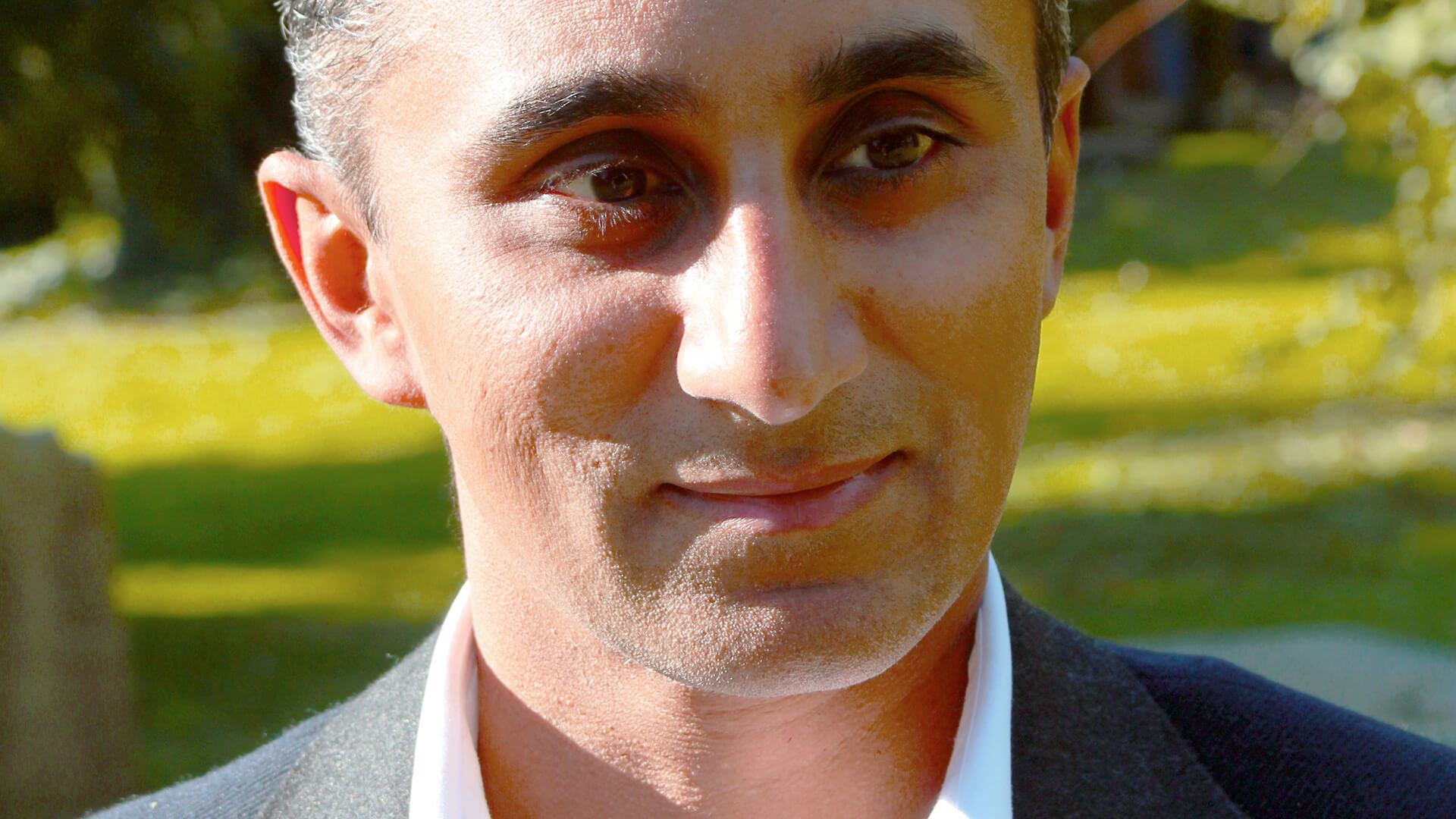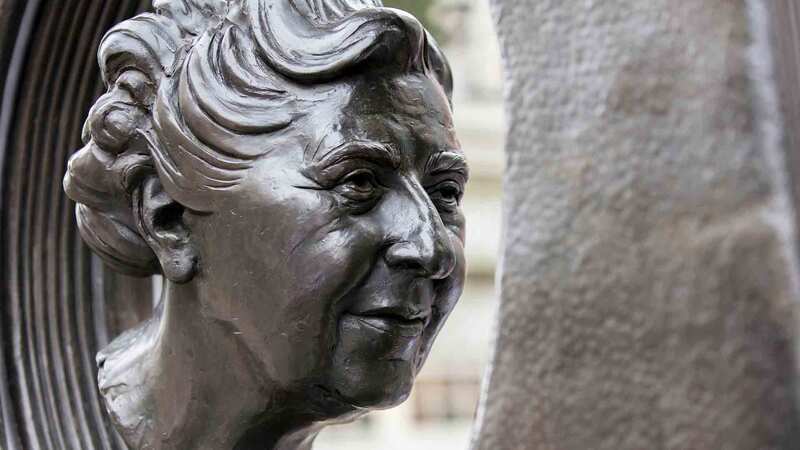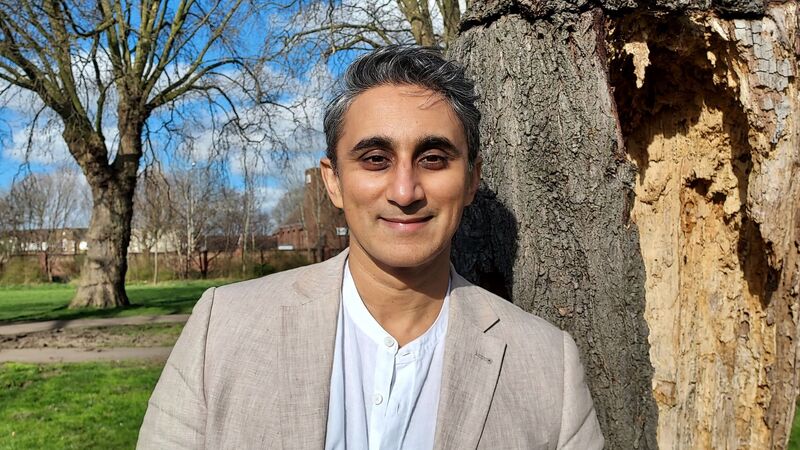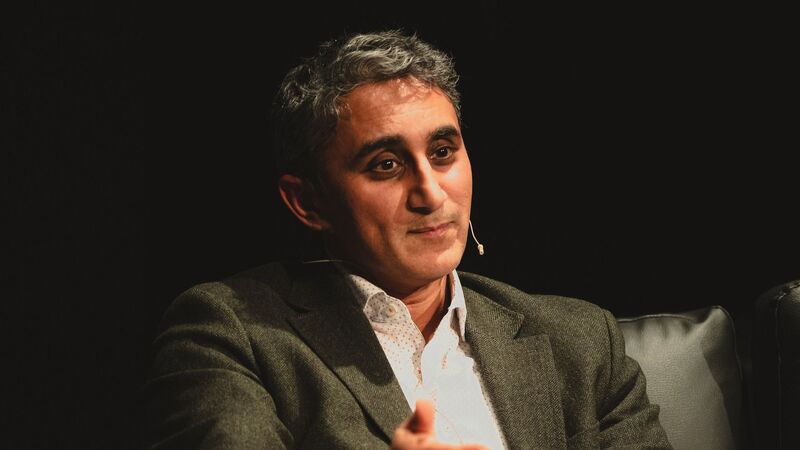You are viewing your 1 free article this month. Login to read more articles.
Vaseem Khan | 'For me, Mumbai is one of the world's eternal cities'

Caroline Sanderson is a non-fiction writer, editor and books journalist. Her books include a travel narrative, A Rambling Fancy: in the F ...more
 Caroline Sanderson
Caroline SandersonCaroline Sanderson is a non-fiction writer, editor and books journalist. Her books include a travel narrative, A Rambling Fancy: in the F ...more
If ever a novel could be said to have been born in a single moment, it is The Unexpected Inheritance of Inspector Chopra. In 1997, its author Vaseem Khan was a 23-year- old management consultant, newly arrived in Mumbai on his first trip to India, and about to take up a job working with a big hotel and restaurant chain on a project to build environmentally friendly “ecotels".
Khan says:“A driver picked me up at the airport and off we went along congested roads. There were honking cars and hooting trucks and buzzing rickshaws and cows and goats and a stream of humans walking along and chattering in different dialects. And right through the middle, lumbering along, came this enormous Indian elephant with a mahout on its back. That moment crystallised India for me, on my very first day there.” When Khan came to write his debut novel some years later, an elephant “gate crashed the party. Almost from the very beginning, Ganesha was in the back of my mind, demanding to be included”.
The novel opens on the day that upstanding Inspector Ashwin Chopra unwillingly takes early retirement from the Mumbai police force. It is also the day he takes delivery of his unexpected inheritance: a baby elephant sent to him by his enigmatic Uncle Bansi. “This is no ordinary elephant”, advises Bansi in his mysterious accompanying letter. And so the creature proves. Ganesha—as the endearing and tenacious baby pachyderm is soon named—and Chopra find themselves investigating their first case together: that of a drowned boy whose suspicious death no one seems to care about solving.
Had he heeded his mother, Khan—born in east London in 1973—might never have made it to Mother India. Khan’s parents had emigrated to Britain from Pakistan. “My father was always very nostalgic about India. But he was only a young boy when he moved to Pakistan, across the newly created border at the time of partition. My mother, however, was born in Pakistan in 1947 after partition so sadly she grew up with this legacy of Pakistan and India being forever at loggerheads with each other. Growing up in the UK, we did watch Bollywood films. So it wasn’t that we were completely distanced from Indian culture, but when it came to politics—or to cricket, which is the proxy for politics in the subcontinent—it was as though it was a battle: Pakistan versus India.”
When the opportunity came to work in India, Khan jumped at the chance, deciding it would be a great adventure. “The hardest part was breaking the news to my mother. I can still remember the day I told her. She cried, and said: ‘How could you possibly be going to India, of all places on earth? Why can’t you just be normal and get a job in London and work and get married and do all the things that Asian boys are supposed to do?’ I said: ‘Look, Mum, I’m only going for a few months so I can get something on my CV. I’ll come back in a few months and get a job in London.’” In the event, Khan stayed in India for 10 years. He also met his wife there, and his whole family—including his mother—came out for the wedding.
The Unexpected Inheritance of Inspector Chopra is an accurate and evocative portrayal of the city Khan grew to love. “Everything about my job—the environment, the people that I was working with—screamed at me to stay,” says Khan. “For me, Mumbai is one of the world’s eternal cities. Although it’s constantly changing, it remains quintessentially Indian: its soul is Indian, and always will be. Mumbai is the best city on the subcontinent because it’s got everything that makes Indians feel alive; like cricket and the Bollywood film industry. It’s a giant candle that draws in people from around the country: all types, all castes, all religions.”
The novel is full of memorable characters too, including Chopra’s flighty but devoted wife Poppy, with whom Ganesha watches TV potboilers and eats fried banana chips; Mrs Subramanium, a “tall mantis-like presence in a dark sari and a severe coif” who presides terrifyingly over the 15-storey apartment complex where Chopra and Poppy live; Bahadur, the building’s pigeon-chested security guard; and Anarkali, a six-foot muscular eunuch in a purple sari, who was inspired by another encounter Khan had on that first car drive from the airport.
A Serious Calling
The deep love for Mumbai and its people—warts and all— that Inspector Chopra shares with his creator infuses the novel from the beginning. It is also what drives Chopra to fight crime and corruption, and even after his retirement it is a calling he cannot abandon. The Unexpected Inheritance of Inspector Chopra is certainly a delightful and uplifting crime caper, but it also comes with an edifying dose of serious social comment, with many of Chopra’s preoccupations mirroring those of his creator.
“I like to think I am an honest person with a sense of integrity. When I was in India, I felt very strongly that justice should prevail, and often it doesn’t. If you have money and if you have fame, you can often escape the consequences of your actions. That never sits well with me and it doesn’t sit well with Chopra either. He is an egalitarian at heart. He believes that all people should be treated in the right manner, regardless of how rich or poor they are. In Chopra, I wanted a counterpoint to the prevailing wisdom that all police officers in India are corrupt. Yes, there is a great deal of low-level corruption in the police force, but there are also many very honest officers.”
Khan admits to giving Chopra some of his other traits too, including his love of cricket. Both author and his character share a deep admiration for Indian cricketer Sachin Tendulkar, to whom Khan intends to give an honorary mention in each of his novels. “Cricket is something that genuinely motivates every sector, every level of Indian society. It’s a great unifying force”.
Cricket is something that genuinely motivates every sector, every level of Indian society. It’s a great unifying force
And like his fictional creation, Khan is also a crime fighter of sorts, thanks to his job as business development director at the Department of Security and Crime Science at University College London. The department was set up with funds raised after the 1999 murder of “Crimewatch” presenter Jill Dando, and investigates scientific methods of improving both crime prevention and crime detection.
Influential Authors
While his day job working on true crime comes in handy for research purposes, Khan is also a wide and devoted reader of crime fiction. “Ian Rankin is a great inspiration. He has managed to create this character, Rebus, whom we shouldn’t like because he has so many faults. But Rankin makes us love him.” Khan admires Michael Connelly’s novels featuring LA-based detective Harry Bosch too. “He’s utterly implacable in the pursuit of justice, and Inspector Chopra has the same inbuilt mission”. Hodder is drawing comparisons for this first novel in the Baby Ganesh Agency series with the work of Alexander McCall Smith. Khan is a fan of the Mma Ramotswe Botswana novels, but believes his books are slightly grittier in the crimes and social ills that they tackle.
Khan has just delivered his second novel, which features Chopra and Ganesha on the trail of the stolen Koh-i-Noor diamond. Two more contracted novels will follow: in book four, Ganesha’s mysterious origins will be explained— and perhaps also his love of Cadbury’s Dairy Milk (in one very funny scene in the first novel, a bar is used to entice Ganesha up a shopping mall escalator while Chopra is chasing a suspect).
What is it about elephants that Khan is so passionate about? “They are just such intelligent creatures, and closely related to human beings in terms of their social structures— they have very strong bonds between mother and child, for example, and they live almost the same number of years as humans. They are very emotional creatures too. I’d love readers to come with me and follow young Ganesha as he grows up: his trials, his tribulations, his triumphs, his highs and lows. And his love of chocolate.”
Metadata
Imprint: Mulholland Books
Publication: 13.08.15
Formats: hb/eb
ISBN: 9781473612266/9781473612259
Rights: Hachette Book Group USA
Editor Ruth Tross, mulholland Books
Agent: Euan Thorneycroft, A M Heath










